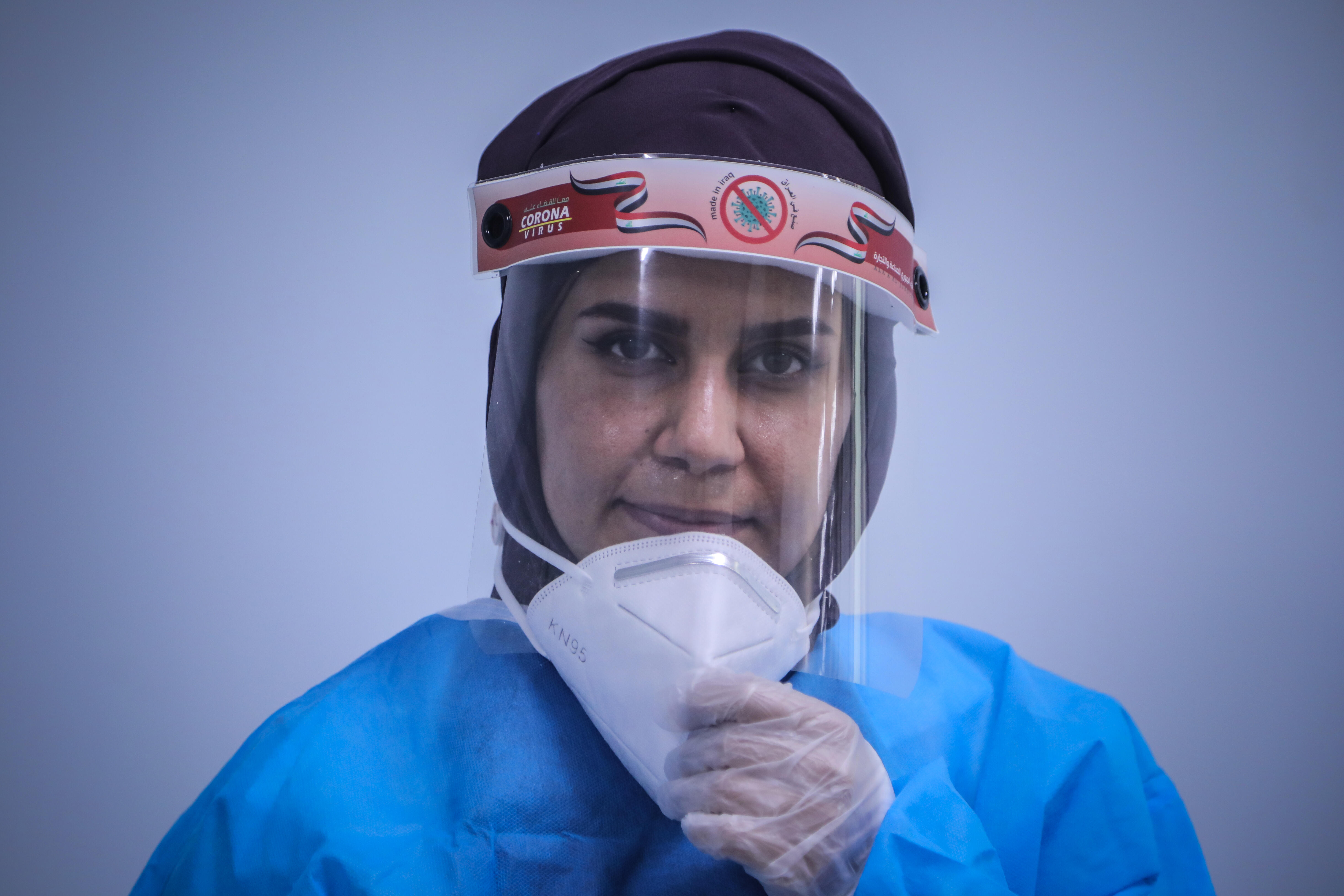Crises like the ISIL conflict and COVID-19 have exacerbated inequalities in Iraq. Essential health services and infrastructure have deteriorated, and not everyone has had equal access to necessary healthcare.
Across the country, WHO, UNFPA, and UNDP work together with the Government of Iraq, the Government of the Kurdistan Region, international partners, other UN agencies and the civil society to bring reliable, accessible healthcare to Iraqis, including the most vulnerable populations, ensuring no one is left behind.
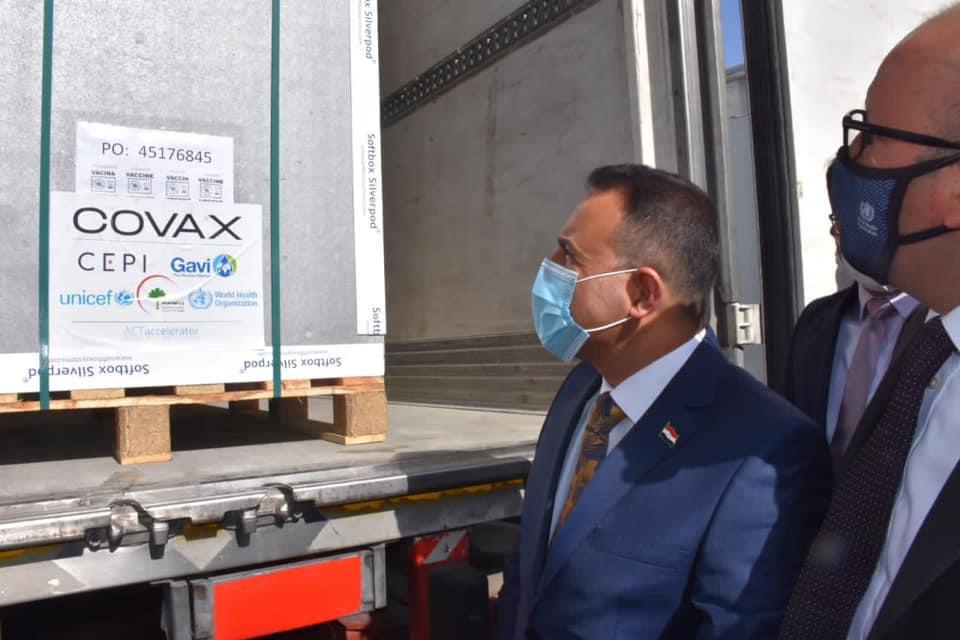
the COVID-19 vaccines at Baghdad International Airport.
WHO and partners, the Vaccine Alliance (Gavi), the Coalition for Epidemic Preparedness Innovations, and UNICEF worked with the Government of Iraq to procure and deliver 336,000 vaccines to the country, many of which will be delivered to the most vulnerable communities.
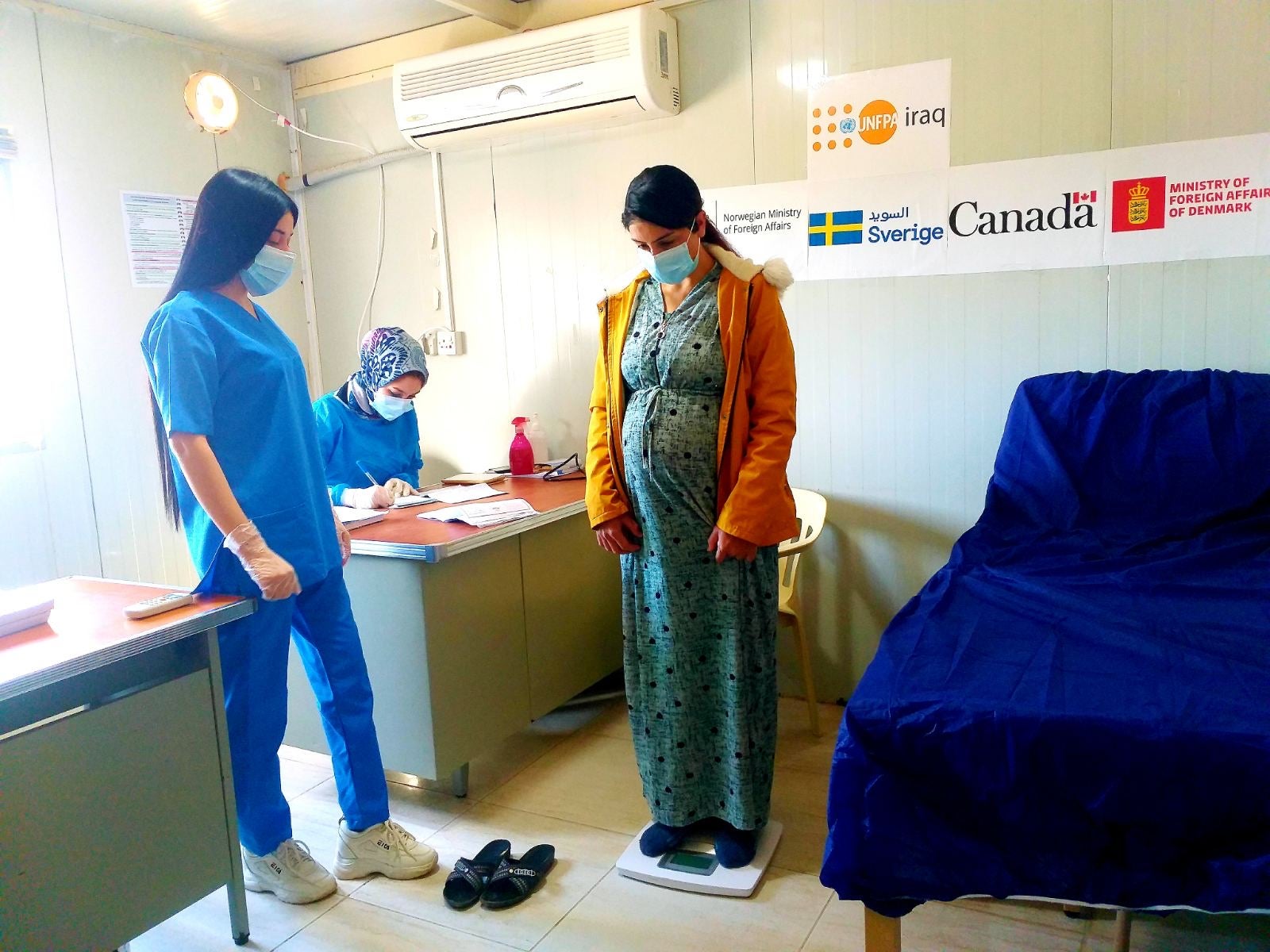
woman at Bersive camp, Duhok.
During the COVID-19 pandemic, women were still in dire need of health services, particularly reproductive health. Despite the COVID-19 lockdown, UNFPA continued to deliver these services while taking the recommended safety and preventative measures. Furthermore, UNFPA delivered five shipments of personal protective equipment to hospitals across the Kurdistan Region through the Ministry of Health in Kurdistan.
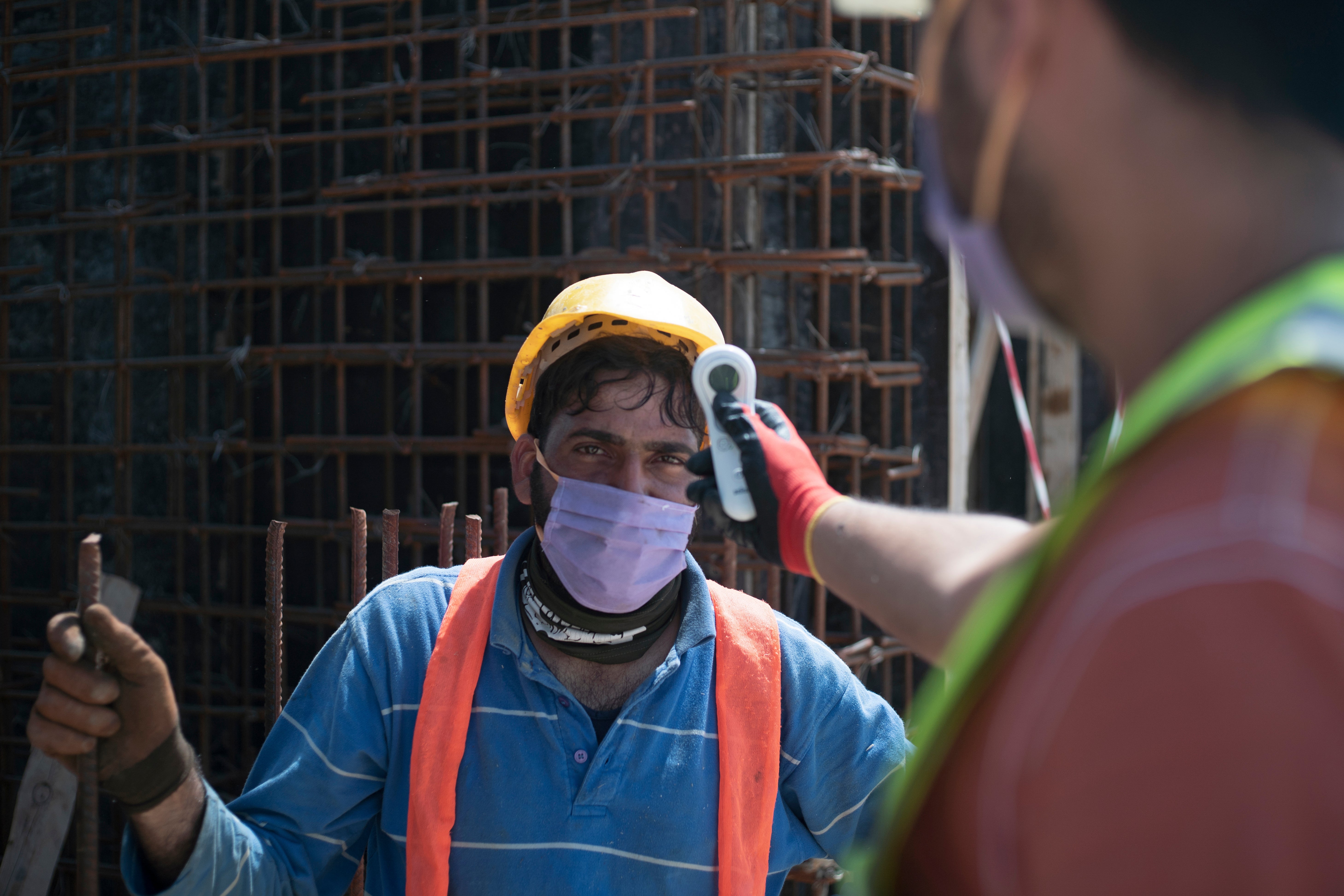
has his temperature checked on site.
The hospital - once ISIL’s headquarters - suffered extensive damage in the conflict, and is being rehabilitated under UNDP’s Funding Facility for Stabilization.
After a brief halt in implementation in April 2020 due to Coronavirus lockdowns, UNDP quickly resumed work to ensure critical healthcare facilities were on their way to completion, with additional safety measures, like onsite temperature checks and hand sanitizing stations.
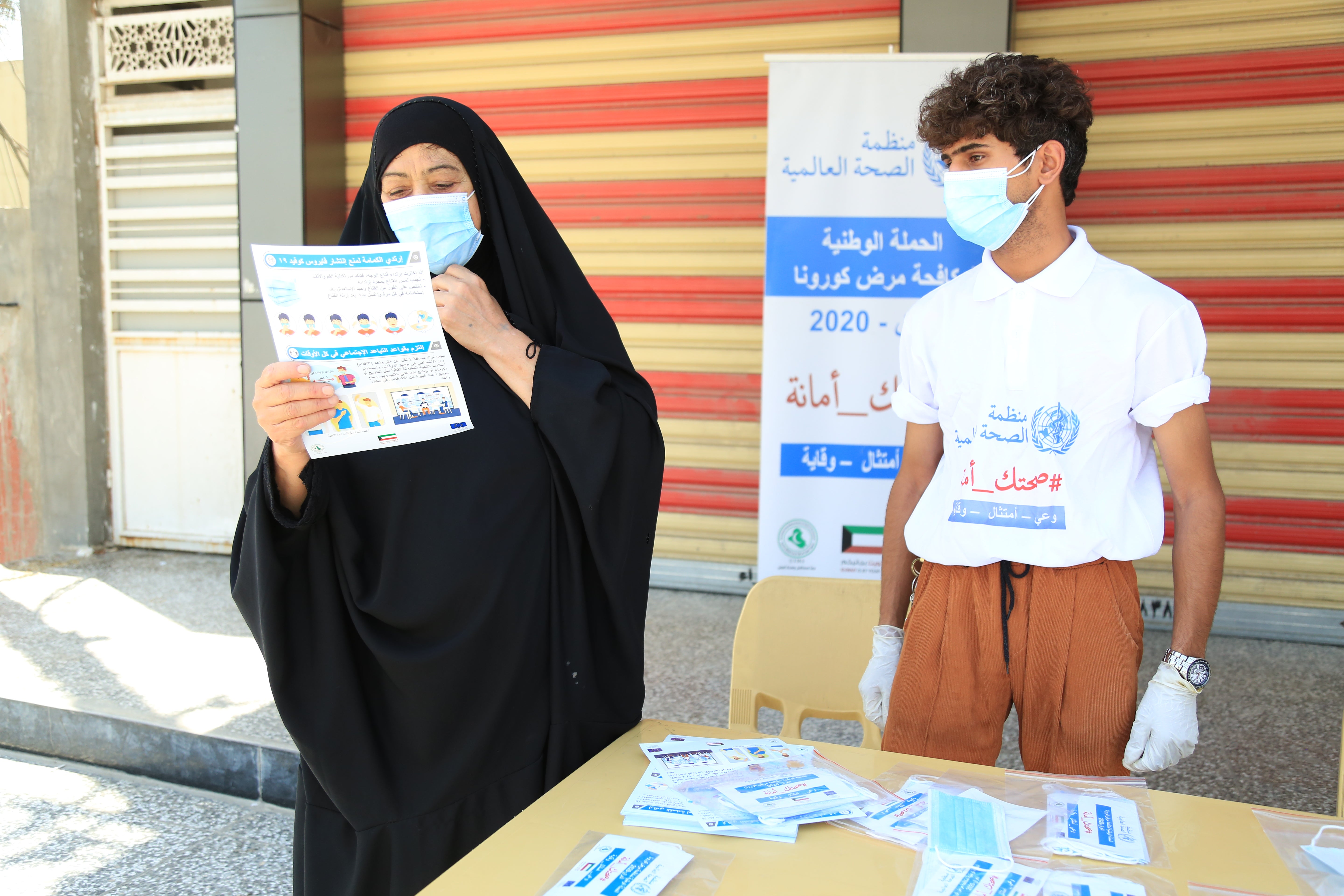
COVID-19 produced by WHO. The materials were developed to
educate and sensitize communities on COVID-19 prevention
measures.
In 2020, WHO reached more than 10 million people Iraq wide in mass communication and community engagement campaigns targeting areas that had reported high numbers of COVID-19 cases, ensuring the most vulnerable were not left behind.
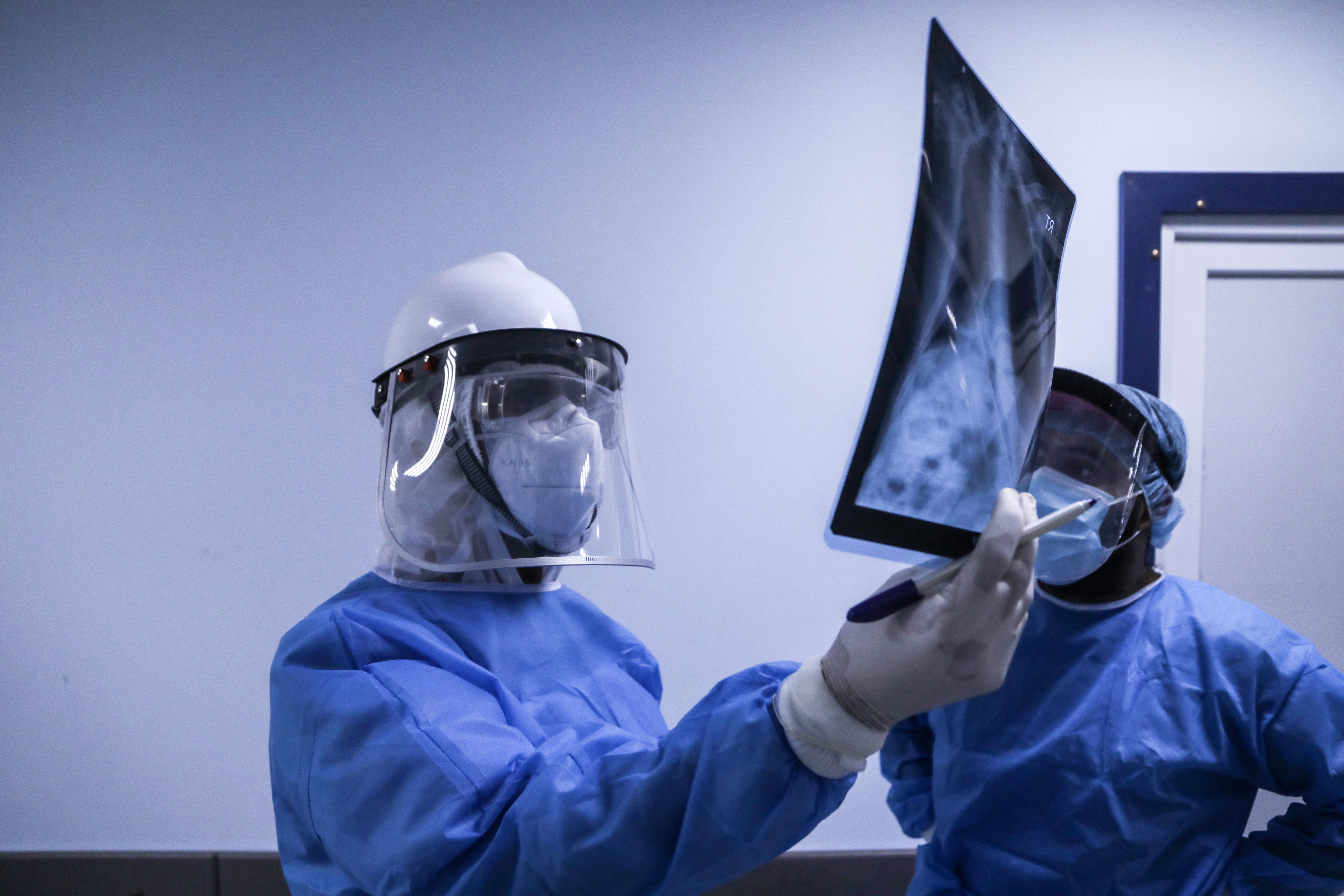
Hospital, Karbala.
The hospital is one of 16 locations where UNDP is supporting the Government of Iraq and the Kurdistan Region of Iraq to manage the COVID-19 outbreak building fully-equipped isolation wards and providing personal protective equipment (PPE) to healthcare workers, complimenting efforts by WHO, UNFPA and other UN agencies in combating COVID-19.
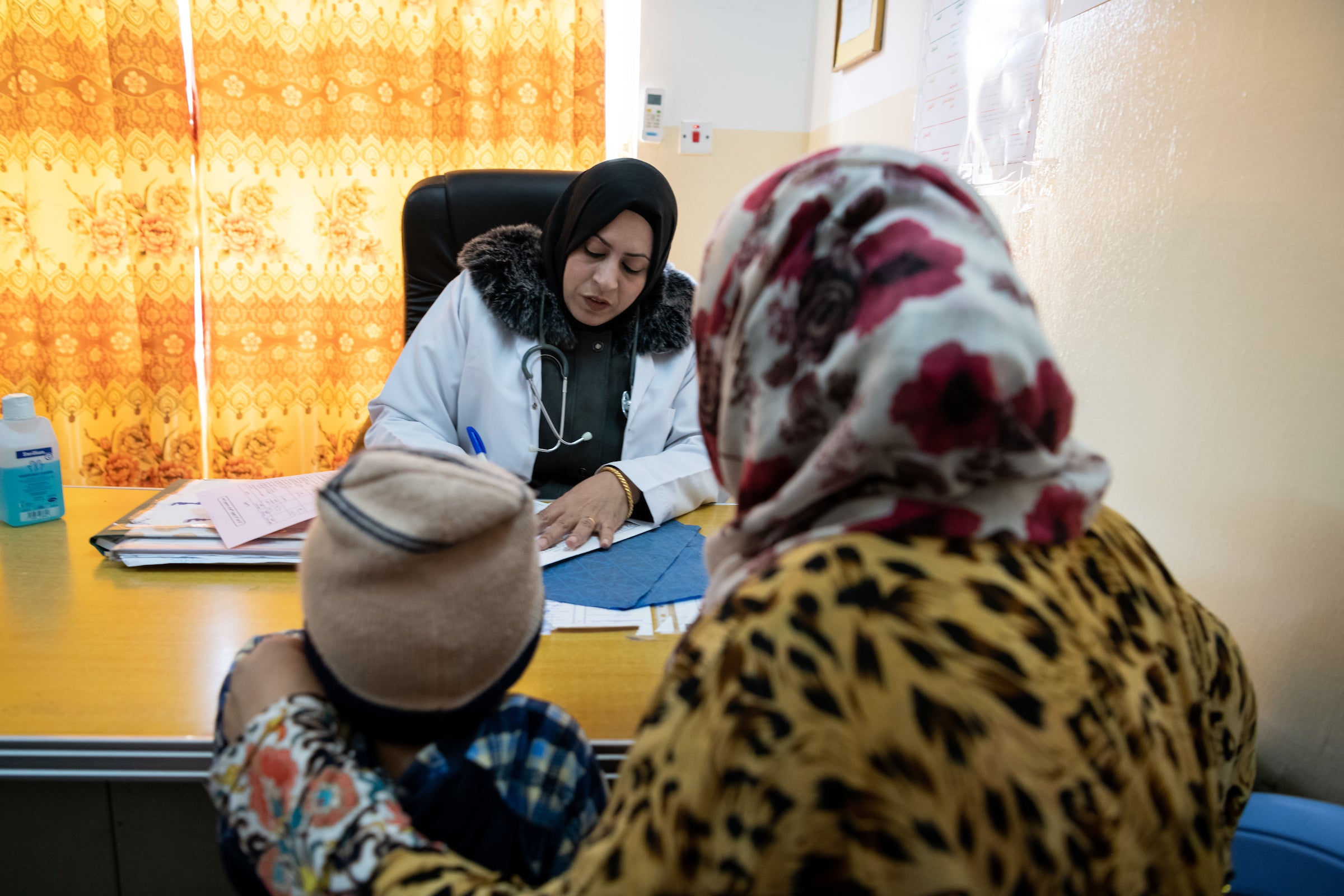
Primary Healthcare Centre in Mosul.
Women, children and internally displaced persons (IDPs) are the most vulnerable to shocks like conflict and COVID-19. To support these communities, UNDP has rehabilitated more than 130 health facilities across Iraq that were damaged in the ISIL conflict. Repairing infrastructure is critical to allow partners like UNFPA and WHO to roll out much-needed health and wellbeing services to the most vulnerable.
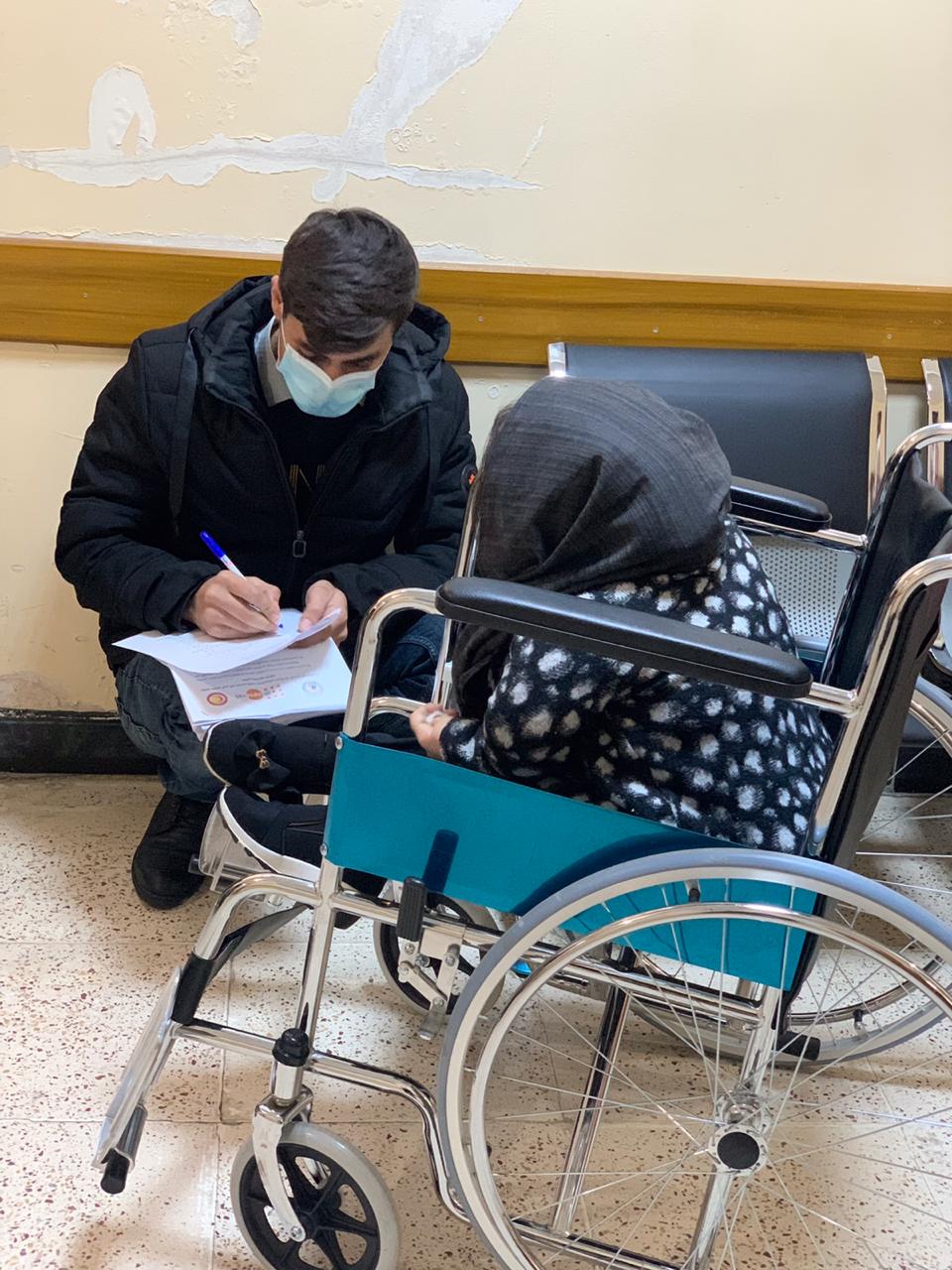
challenges faced by women with disabilities at the
UNFPA-supported disability-friendly facility in Erbil.
Iraq can only become healthier when all its residents are treated fairly and have equal access to services. in the Kurdistan Region of Iraq, UNFPA opened seven reproductive health facilities equipped with disability-friendly furniture and equipment.
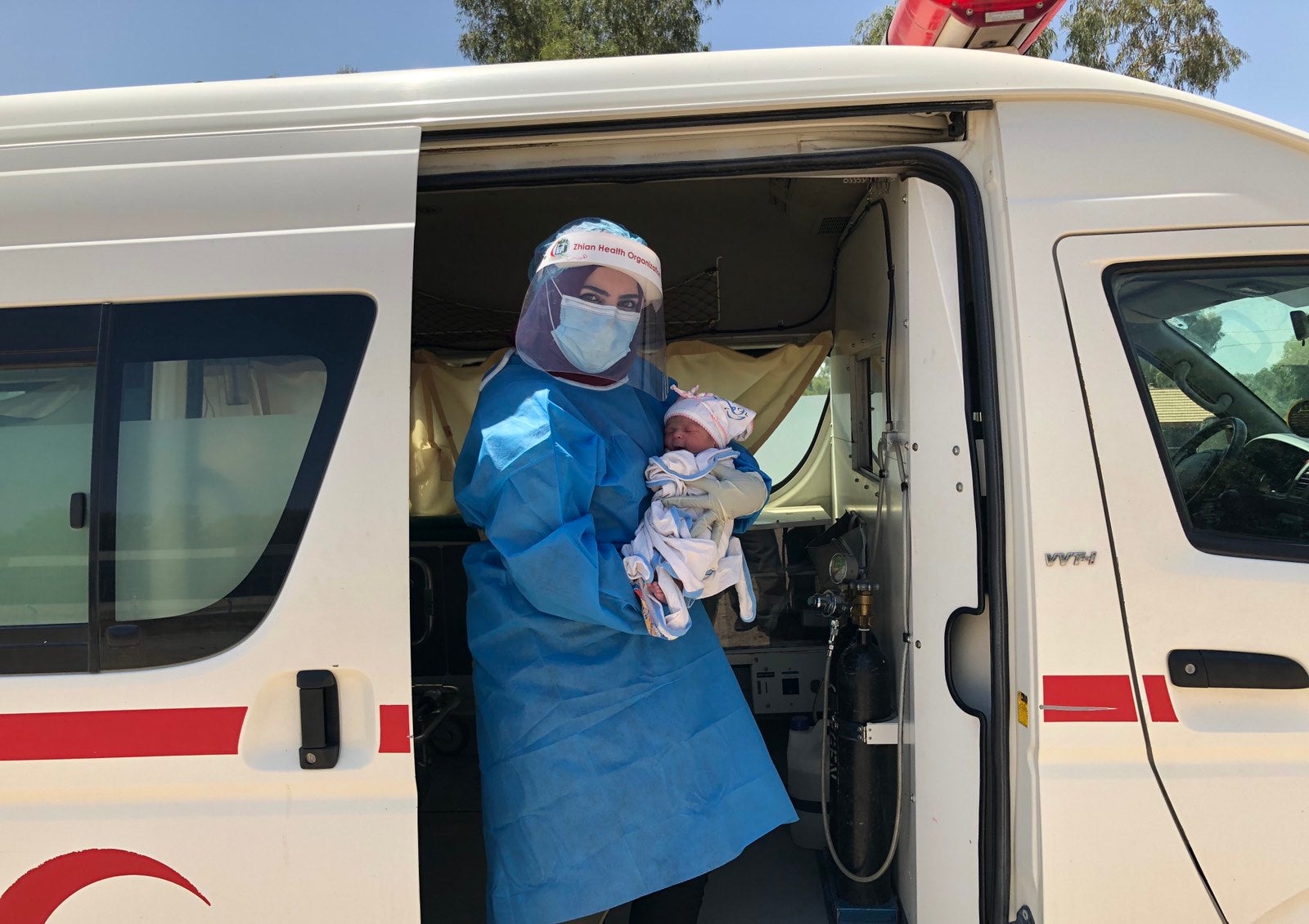
photographed in an ambulance after delivering a healthy baby.
In 2020 UNFPA supported 90 health facilities, of which 25 provided emergency obstetric and newborn care (EmONC) services and 15 are in camp settings.
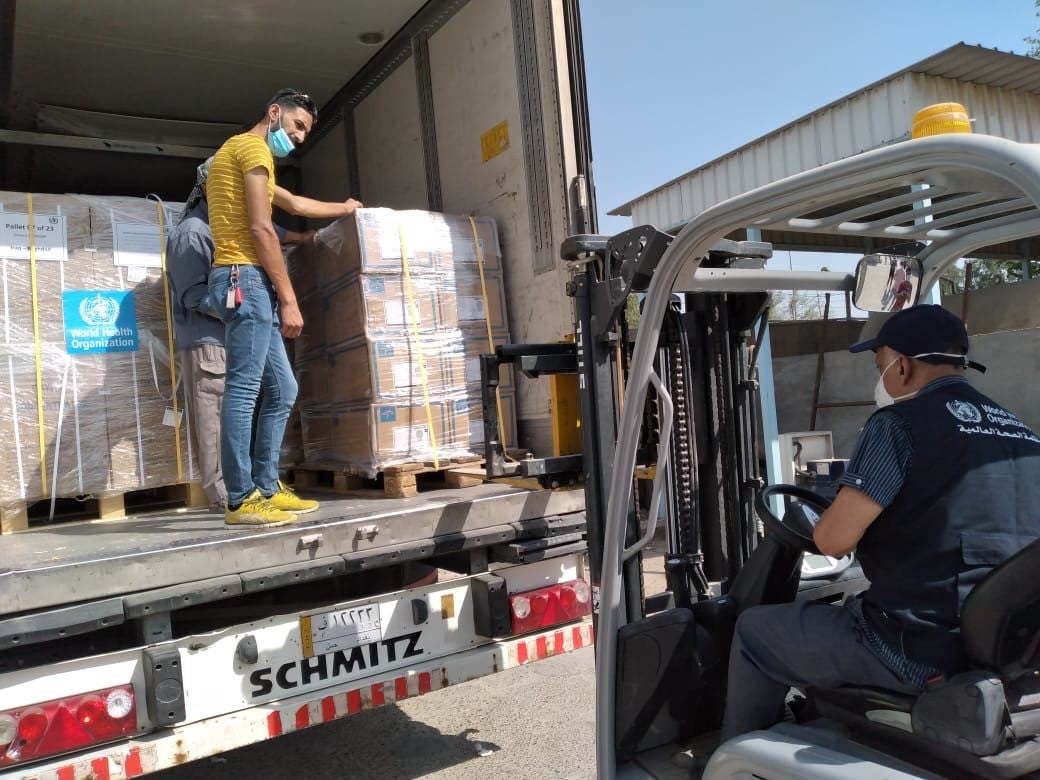
onto a truck at a WHO warehouse in Baghdad.
To ensure equal access to COVID-19 medical assistance for all Iraqis, WHO supported the Ministry of Health and Kurdistan Ministry of Health to rapidly mobilize, procure and deliver critical medical supplies including medicines, medical devices like Intensive care unit beds, personal protective equipment, laboratory reagents and test kits to rapidly detect, isolate and treat COVID-19 patients. These were distributed to all health facilities managing COVID-19 cases and Public Health Laboratories Iraq wide.
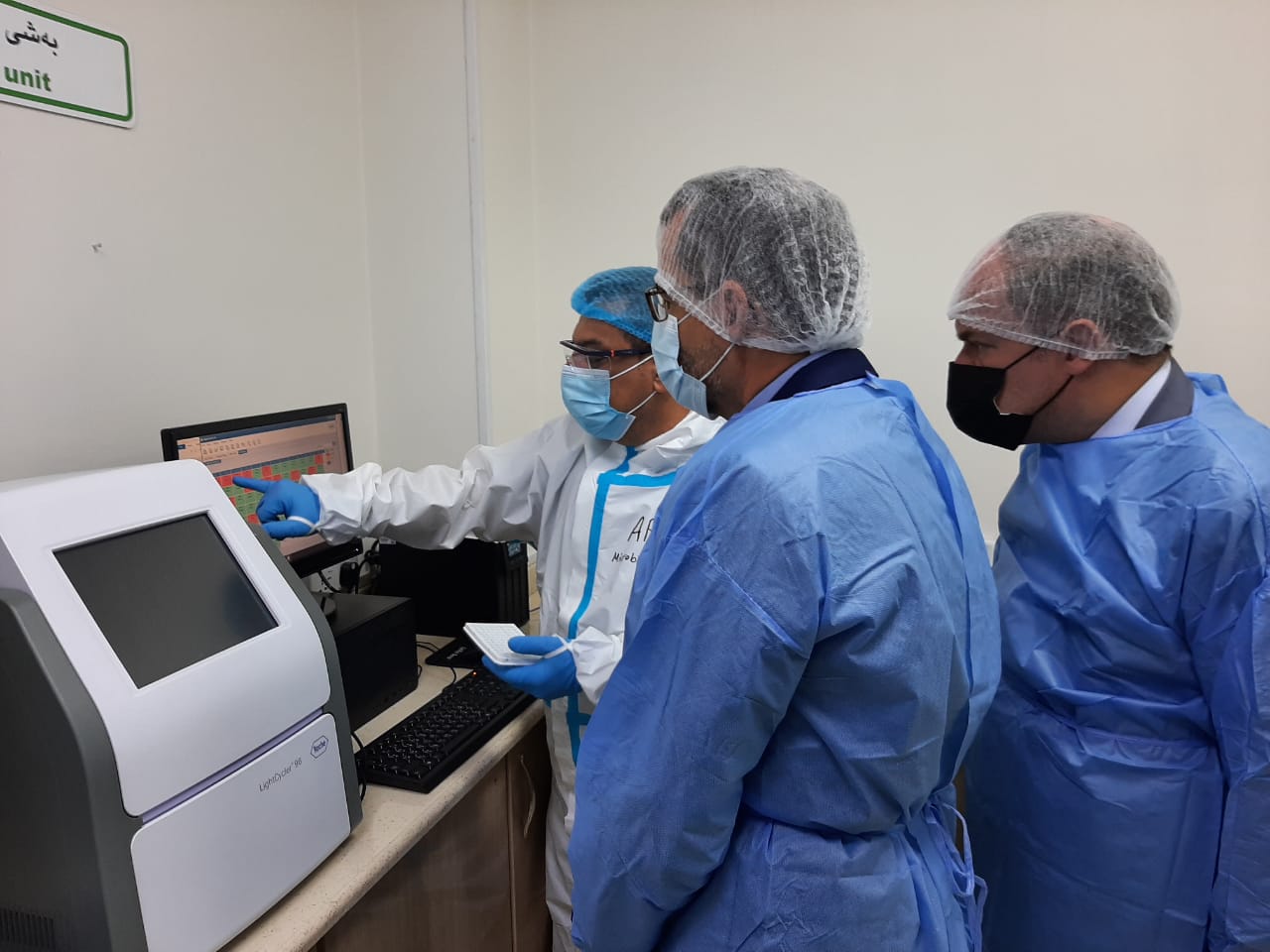
and provides guidance on the management of COVID-19
patients to the medical team in Halabja Hospital.
To maintain essential supplies for frontline workers responding to COVID-19 cases, WHO supplied more than 2 million Personal Protective Equipment, hundreds of other hospital and medical supplies. In Kirkuk, WHO procured and delivered ten caravans to the Department of Health to strengthen the COVID-19 response. WHO also procured and provided ambulances to support patient transportation to treatment sites.
On this year’s World Health Day, WHO, UNFPA and UNDP reiterate their commitment to helping communities across the country access quality services for a healthier and fairer Iraq.
--

